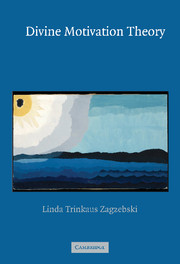Part III - Ethical pluralism
Published online by Cambridge University Press: 02 December 2009
Summary
The theory of this book defines moral properties by reference to exemplars of goodness. Exemplars differ in significant ways, and that is both an advantage and a disadvantage. The advantage is that the theory recognizes more than one way for an individual to live a good life and for a society to organize itself in a system of good moral practices. The disadvantage is that exemplars can conflict with each other in emotions and behavior. Some of these conflicts need to be resolved, although not all do. So far, the theory has given no way to resolve conflict between exemplars or even to explain how conflict can occur. The purpose of this last chapter is to answer these questions. I will begin by comparing the Ideal Observer theory with the form of exemplarism I have endorsed, an Ideal Agent theory, and will give reasons for prefering the latter. I will then propose some principles that can be used to resolve conflicts between ideal agents.
Information
- Type
- Chapter
- Information
- Divine Motivation Theory , pp. 345 - 346Publisher: Cambridge University PressPrint publication year: 2004
